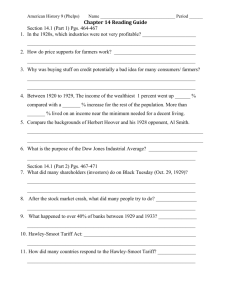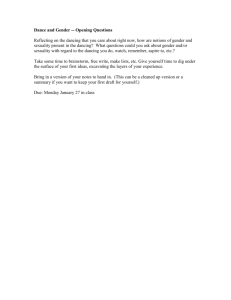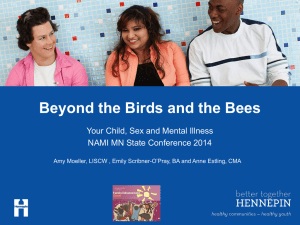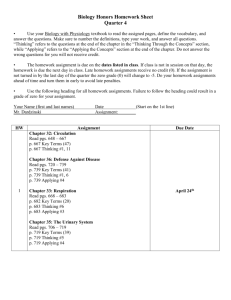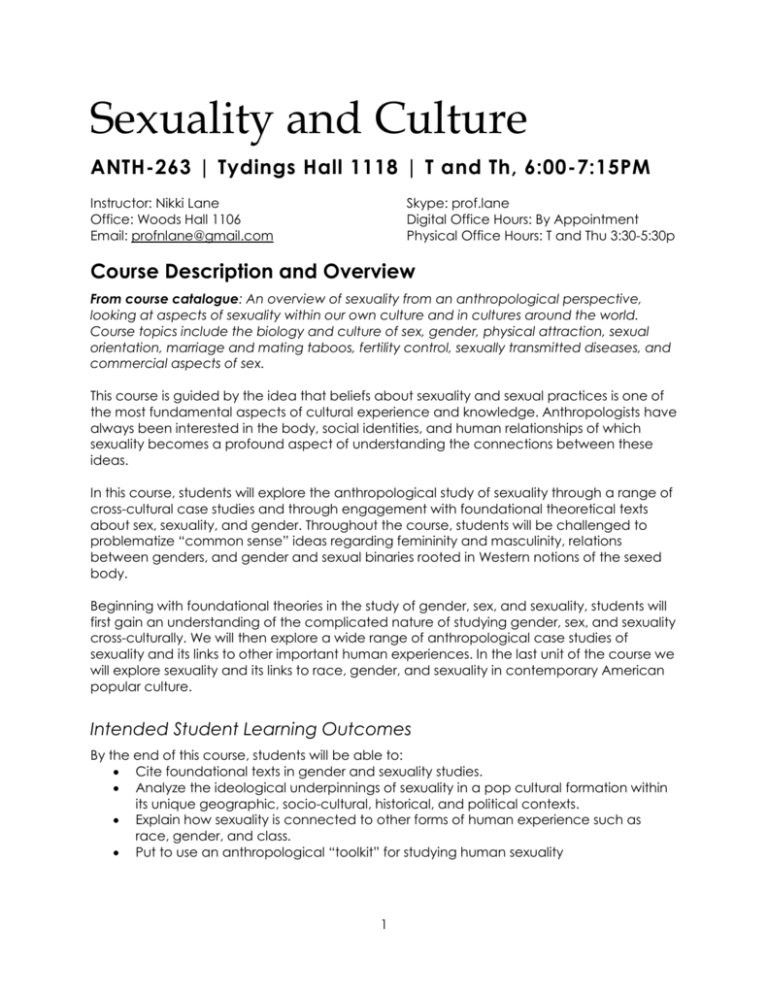
Sexuality and Culture
ANTH-263 | Tydings Hall 1118 | T and Th, 6:00-7:15PM
Instructor: Nikki Lane
Office: Woods Hall 1106
Email: profnlane@gmail.com
Skype: prof.lane
Digital Office Hours: By Appointment
Physical Office Hours: T and Thu 3:30-5:30p
Course Description and Overview
From course catalogue: An overview of sexuality from an anthropological perspective,
looking at aspects of sexuality within our own culture and in cultures around the world.
Course topics include the biology and culture of sex, gender, physical attraction, sexual
orientation, marriage and mating taboos, fertility control, sexually transmitted diseases, and
commercial aspects of sex.
This course is guided by the idea that beliefs about sexuality and sexual practices is one of
the most fundamental aspects of cultural experience and knowledge. Anthropologists have
always been interested in the body, social identities, and human relationships of which
sexuality becomes a profound aspect of understanding the connections between these
ideas.
In this course, students will explore the anthropological study of sexuality through a range of
cross-cultural case studies and through engagement with foundational theoretical texts
about sex, sexuality, and gender. Throughout the course, students will be challenged to
problematize “common sense” ideas regarding femininity and masculinity, relations
between genders, and gender and sexual binaries rooted in Western notions of the sexed
body.
Beginning with foundational theories in the study of gender, sex, and sexuality, students will
first gain an understanding of the complicated nature of studying gender, sex, and sexuality
cross-culturally. We will then explore a wide range of anthropological case studies of
sexuality and its links to other important human experiences. In the last unit of the course we
will explore sexuality and its links to race, gender, and sexuality in contemporary American
popular culture.
Intended Student Learning Outcomes
By the end of this course, students will be able to:
Cite foundational texts in gender and sexuality studies.
Analyze the ideological underpinnings of sexuality in a pop cultural formation within
its unique geographic, socio-cultural, historical, and political contexts.
Explain how sexuality is connected to other forms of human experience such as
race, gender, and class.
Put to use an anthropological “toolkit” for studying human sexuality
1
Course Expectations
Course Format: Seminar
Approximately 25% of the class time will be used for lecture (~20 minutes). The remaining
75% will take the form of class and small-group discussions, listening and/or viewing media,
and “hands-on” critical thinking exercises.
Class Rules
1. Come to class.
2. Be on time to class.
3. Come to class thoroughly prepared with notes, questions, and assigned reading
materials.
4. Open the bag and pop the can before class starts.
5. Put all electronic devices (phones, tablets, and computers) in silent mode.
6. Do not use electronic devices to “zone out.”
If the professor notices you “zoning out” which includes surfing the Internet, Google
chatting, Instagraming, Tweeting, Facebooking, blogging, or any other manner of
using an e-device while not engaging in course activities, you will be asked to turn
off the device and leave it at home for the remainder of the semester. You will also
be given a “zero” for class participation/attendance that day.
7. Follow class rules regarding discussion (to be determined by the class on the first day)
8. Check MyElms frequently and read/respond to posts/emails from the prof with due
diligence.
9. Be courteous to your classmates and to the professor.
Students receive a zero for class participation/attendance for the week if they fail to follow
the Class Rules outlined above. If an issue/crisis arises or persists that prevents you, or might
prevent you, from fulfilling any of course expectations, it is necessary that you communicate
this to me via email or in person immediately.
Academic Integrity
Expectations of Academic Integrity apply to all activities in this course. If you are suspected
and/or found to be in violation of the code, the professor will, without hesitation, forward
the case to the Dean to seek sanctions. Please review the Code of Academic Integrity and
see me if you have any questions about the academic violations described in the code in
general or as they relate to particular requirements for the course: http://www.shc.umd.edu
Citations
For all written assignments in this class, you must cite a source if that source is (1) quoted
directly, (2) consulted regarding dates, “facts,” and figures, or (3) paraphrased (i.e. their
idea in your own words).
It is imperative that when paraphrasing and “reworking” material found in sources that you
demonstrate your critical thinking and analytic skills by drawing from other people’s work to
develop your own ideas and to support your own thesis. If you need help determining
whether you’re doing this properly, please do not hesitate to ask the professor.
Follow the AAA or Chicago Manual 16th Style guides for citations.
2
Academic Support Services
Office Hours and General Support
If you have any questions about course content, experience trouble with assigned readings,
or need help with written assignments, please see me during office hours, digital office hours
held via Skype and Google Hangout, or immediately following class when I will make myself
available for another fifteen minutes. I am committed to you being successful in this course,
and am committed to helping you be successful throughout your collegiate experience. If
you require any help, please think of me as a resource and call on me accordingly.
Time Management and Productivity
Listed below are useful online resources relating to being a productive and stress-free
individual and student:
Time Management Ninja - http://timemanagementninja.com/
How to Study in College - http://howtostudyincollege.com/
Study Hack Blog - http://calnewport.com/blog/
Student learning needs
Students who are clients of Disability Support Services have the responsibility of requesting
services through DSS at the beginning of each semester. Once documentation is obtained
and shared with me, I am committed to ensuring that you have the accommodations you
require.
For more information about registering with UMD Disability Support Services
Phone: 301.314.7682
Office: 0106 Shoemaker Building
Email: Dissup@umd.edu
Office Hours: Monday - Friday (8:30am to 4:30pm)
Other services that may be helpful for you throughout the semester include:
o The Writing Center
o Counseling Center
Assessment
Assignments and Point Value
Course Assignment/Requirement
Attendance/Participation
Attendance
Participation/Preparation
Reading Journal
(Take-Home) Theory Exam
Lead the Class w/ reading group
“All but the Paper” Research Portfolio
Topic Statement
Annotated Bibliography
Research Log + Summary of Findings
Presentation of findings
Outline of the paper (Thesis and Summary)
+ Complete portfolio with edits
Total
Points
15 pts
5 pts
10 pts
10 pts
15 pts
10 pts
50 pts
5 pts
10 pts
10 pts
10 pts
15 pts
100 pts
Table 1 Assignments, points, and due dates
3
Due
Assessed weekly.
Checked 4 times during the semester
Nov 5 (handed out Oct 29)
Weekly as assigned
Sep 17
Oct 20
Nov 19
Dec 8 and Dec 10
Final Exam Period
I do not accept late assignments. If you have scheduling
conflicts with the above due dates, you must make
arrangements no fewer than 7 days PRIOR to the due date.
A+
100
A
95 and less than 100
A-
90 and less than 95
B+
85 and less than 90
Please check your schedules for travel, work, and other
courses. If there are conflicts or potential conflicts, please bring
this to the attention of the professor immediately so that
alternative arrangements can be made.
B
83 and less than 85
B-
80 and less than 83
C+
75 and less than 80
C
70 and less than 75
Attendance/Participation (15 pts)
C-
65 and less than 70
Attendance
You are allowed one excused absence during the term.
D
60 and less than 65
F
less than 60
Class Participation:
Students are required to participate in lively, critical discussion in-class regarding course
materials which include readings, films, music, recent D.C. events, and other media relevant
to course materials both assigned and shared.
All assignments listed below are MAJOR ASSIGNMENTS. Neglecting to do these assignments
will negatively impact your ability to pass the class.
Reading Journal (10 pts)
You will maintain a reading journal using a Template I provide via Google Drive where you
will keep short annotations/notes for all of the reading material in class. I will check the
journal 4 times during the semester.
Theory Exam (15 pts)
This take home exam will include 5 short answers (one paragraph each) and a 2-3 page
essay question which will test your ability to apply major theories and foundational concepts
to data I provide.
Lead the Class w/ reading group (10 pts)
You will be assigned to a reading group at the start of the semester. Your group will
select one of the available weeks to lead the class (30 minutes) in an activity of your
design or discussion of your choosing around the slated topic and set of readings
assigned for that week. Your group is required to meet at least once outside of class
time to discuss the readings and prepare a “Lesson Plan” in Google Docs that outlines
your activity/discussion which you will turn in to the professor no less than 2 days prior to
your assigned presentation day.
“All but the Paper” Research Portfolio (50 pts)
You will conduct the research for a term paper on a topic related to sexuality in popular
culture. The context and topic are of your choosing but will deal with the major themes of
the course. The portfolio allows you to focus on the process of conducting a research
project, and thus you will do everything except write the paper. You will work alone. The
components of the assignment are as follows:
Topic Statement
A one-page (single-spaced) proposal of your intended research and its design.
4
Annotated bibliography
You will annotate 4-5 sources (350-500 words each) and provide a short thesis
statement at the beginning of the document describing the subject and rationale of
the annotated bibliography (200-250 words).
http://www.writing.utoronto.ca/advice/specific-types-of-writing/annotatedbibliography
Research Log + Summary of Findings
You will turn in a digital notebook of your annotated collected research (using
Google Docs) and write a 3-5 pg (1200-1500 word) essay describing what
knowledge you’ve generated through research about your chosen topic.
Present your findings to the class
You will present your research findings to the class in 5 minute presentation.
Full outline with Thesis Statement and Opening Paragraph
For your final, you will turn in a complete outline of the paper which will include
sources and a discussion of your findings. You will include the opening paragraph of
the paper which includes the thesis statement and a 2-3 page summary of the
research you conducted as a way of a conclusion. The complete edited “All but the
Paper” Research Portfolio (including, Topic Statement, Annotated Bibliography, and
your Research Log and Summary of Findings) will be assessed as a portion of this
grade.
Feedback
All assignments have a full, detailed assignment sheet and rubric associated with them and
will be published on the course website. Please review and follow the directions given in the
assignment sheets and use the associated rubrics to guide your preparation of your
assignments.
All assignments will be returned within 7 days of receipt, unless noted otherwise. I do not
accept late assignments.
Preparation
You are to prepare thoroughly for each course meeting and ensure that you have a strong
grasp of the main ideas and arguments of each reading and are familiar with the plots,
qualities, and significance of any media assigned. You should expect 2-3 key readings per
week (50-60 pages) in addition to key media/cultural texts to review.
All texts are “fair game” for the take-home exam and should be drawn upon and engaged
in your assignments.
Estimates of page lengths are provided for each reading assignment to help you to plan
your review of the materials.
Required Texts
Purchase or rent a digital copy of the film Boy Meets Girl (2015)
There are no textbooks that you need to purchase for this course.
All other materials are provided on MyElms.umd.edu
5
Tentative Course Schedule
Course schedule is subject to change. For a full list of materials you are responsible for
reviewing each week, see the corresponding week’s page on the online learning
management system.
Unit 1 – Coming to Terms: Definitions and Foundations
Week 1 – Introductions and the Power of Ideas
Tuesday, 9/1 - Introductions
1. Take the ungraded Orientation Survey
2. Draft Syllabus (Final version posted on August 31)
3. How to Read Like Your Professor: A Guide for Effective and Efficient Reading (3
pgs)
4. Watch: Al Vernacchio's Ted Talk: "Sex needs a new metaphor. Here’s one" (Links
to an external site.) (8 minutes)
Thursday, 9/3 - Power, Ideology, and the Role of Sexuality in Culture
1. Eagleton, Terry. 1991. Ideology: An Introduction. London & New York: Verso. Read
Chapter 1 - What is Ideology? (31 pgs) Skim the rest!
Week 2 – Treating, Dealing, and Working Outside of Binaries
Tuesday, 9/8 – The Science of Binaries
1. Martin, Emily. 1991. "The Egg and the Sperm: How Science Has Constructed a
Romance Based on Stereotypical Male-Female Roles." Signs 16 (3):485-501. (16
pgs)
2. Fausto-Sterling, Anne. 1993. "The five sexes." Sciences 33 (2):20-25. (5 pgs)
3. Fausto-Sterling, Anne. 2000. "The Five Sexes, Revisited." Sciences 40 (4):18-23. (5
pgs)
Thursday, 9/11 – Gender/Sex Binaries
1. Lorber, Judith: Beyond the Binaries: Depolarizing the Categories of Sex, Sexuality,
and Gender (13 pgs)
2. Wilchins, Riki. 2002. "It’s your gender, stupid." In Genderqueer: Voices from
beyond the sexual binary, edited by Joan Nestle, Riki Wilchins and Clare Howell,
23-32. Los Angeles, CA: Alyson Publications. (10 pgs, easy, quick read)
Week 3 – Doing Gender
Tuesday, 9/15 – How Gender Gets Done
1. West, Candace, and Don H. Zimmerman. 1987. "Doing Gender." Gender &
Society 1 (2):125-151. (25 pgs)
2. Trans and Genderqueer Glossary (Review, write down at least 2 that you want to
discuss in more detail with the class.)
Thursday, 9/17 – Masculinities and Femininities
Topic Statement Due at 10pm
1. Malam, Linda. 2004. "Performing Masculinity on the Thai Beach Scene." Tourism
Geographies 6 (4):455-471. (14 pgs)
6
Week 4 – Performativity and Performance
Tuesday, 9/22 – Performativity
1. Butler, Judith. 1988. "Performative Acts and Gender Constitution: An Essay in
Phenomenology and Feminist Theory." Theatre Journal 40 (4):519-531. (13 pgs)
2. Felluga, Dino. "Modules on Butler: On Performativity." Introductory Guide to
Critical Theory. January 31, 2011. <Last accessed, August 25, 2015>.
<http://www.purdue.edu/guidetotheory/genderandsex/modules/butlerperforma
tivity.html>.
Thursday, 9/24 – Lady Gaga, Performance, and Performativity
1. Halberstam, Jack. 2013. "Go Gaga: Anarchy, Chaos, and the Wild." Social Text
31 (3_116):123-134. (11 pgs)
2. Watch Lady Gaga Music Videos
a. “Bad Romance”
b. “Telephone”
c. “Born This Way”
Week 5 – Historicizing Sexuality
Tuesday, 9/29 – History of Sexuality
1. Foucault, Michel 1990 The history of sexuality. Volume 1: an introduction. New
York: Vintage. Part 1 and Part 2 (36 pgs)
Thurs, 10/1 – Becoming Sexualized Subjects
1. Somerville, Siobhan. 1994. "Scientific Racism and the Emergence of the
Homosexual Body." Journal of the History of Sexuality 5 (2):243-266. (23 pgs)
2. Review: Frontline Interactive Guide: Assault on Gay America: The Life and Death
of Billy Jack Gaither (pay particular attention to the “Who’s Gay? What’s
Straight?” page.
Week 6 – Intersectionality
Tuesday, 10/6 – Intersectionality**
1. Williams, Kimberlé Crenshaw. "Mapping the Margins: Intersectionality, Identity
Politics, and Violence Against Women of Color". In: Martha Albertson Fineman,
Rixanne Mykitiuk, Eds. The Public Nature of Private Violence. (New York:
Routledge, 1994), p. 93-118. (15 pgs)
2. McCall, Leslie. 2005. "The Complexity of Intersectionality." Signs 30 (3):1771-1800.
(25 pgs)
Thursday, 10/8 – Complicating Intersectionality
1. Johnson, E. Patrick. 2003. "The Pot is Brewing: Marlon Riggs' Black is... Black Ain't."
In Appropriating Blackness: Performance and the Politics of Authenticity. Durham
and London: Duke University Press. (30 pgs)
2. Watch remainder of Marlon Riggs’ “Black is… Black Ain’t” (60 minutes)
**Please note this is a heavy reading week. Plan your schedule accordingly.
7
Unit 2 – Problematizing What’s Normal
Week 7 – Policing Normality
Tuesday, 10/13 - Producing Heteronormativity
(Choose one)
1. Rubin, Gayle. Thinking Sex: Notes for a Radical Theory of the Politics of Sexuality,
in Vance, Carole. Pleasure and Danger: Exploring Female Sexuality (30 pgs)
2. Baker, Paul. 2008. Constructing Normality: Gendered Discourses and
Heteronormativity (29 pgs)
Thursday, 10/15 – Violence and Normality
1. Nkabinde, Nkunzi, and Ruth Morgan. 2006. "‘This has happened since ancient
times…it's something that you are born with’: ancestral wives among same-sex
sangomas in South Africa." Agenda 20 (67):9-19. (10 pgs)
2. Muholi, Zanele. 2004. "Thinking through lesbian rape." Agenda 18 (61):116-125. (9
pgs)
3. Review: "We'll Show You You're a Woman" Violence and Discrimination against
Black Lesbians and Transgender Men in South Africa.
Week 8 – It’s “Normal” to just pick ONE
Tuesday, 10/20 – Intimacy outside of Heteronormativity
Annotated Bibliography Due at 10pm
1. Jamison, Lynn. (1999) Intimacy Transformed? A Critical Look At The ‘Pure
Relationship’ (15 pgs)
2. Christian Klesse, Polyamory and its ‘Others’: Contesting the Terms of NonMonogamy (15 pgs)
Thursday, 10/22 – Bisexuality and the Blues
1. Braziel, Jana Evans. 2004. “Bye,Bye Baby”: Race, Bisexuality, and the Blues in the
Music of Bessie Smith and Janis Joplin. Popular Music and Society 27 (1): 3-26. (18
pgs)
2. Screen: Boy Meets Girl (2015) (Available for purchase on iTunes, Amazon, and
other places for $4.99)
Week 9 – “Normal” Bodies
Tuesday, 10/27 – Pleasure, Sexuality, and Disability
Guest Speakers
1. Tepper, Mitchell S. 2000. "Sexuality and Disability: The Missing Discourse of Pleasure."
Sexuality and Disability 18 (4):283-290. (7 pgs)
2. Additional reading: TBD
Thursday, 10/29 – Wrong Body, Wrong Place
Take-Home Exam Handed Out in class
(Choose One)
1. Held, Nina, and Tara Leach. 2008. ""What Are You Doing Here?': The 'Look' and
(Non) Belongings of Racialised Bodies in Sexualised Space." In Out of place :
interrogating silences in queerness/raciality, edited by Adi Kuntsman and
Esperanza Miyake. Raw Nerve Books. (25 pgs)
2. Leap, William. 2009. "Professional Baseball, Urban Restructuring, and (Changing)
Gay Geographies in Washington, D.C." In Out in public : reinventing lesbian/gay
8
anthropology in a globalizing world, edited by Ellen Lewin and William Leap, xii,
365 p. Chichester, U.K. ; Malden, MA: Wiley-Blackwell. (20 pgs)Braziel, Jana Evans,
Unit 3 – Sex in (Pop) Culture
Week 10 – Sexuality and the Politics of Representation
Tuesday, 11/3 – Hypersexuality
1. Shimizu, Celine Parreñas. 2007. “The Hypersexuality of Asian/American Women:
Toward a Politically Productive Perversity on Screen and Scene.” In The
hypersexuality of race : performing Asian/American women on screen and
scene. Durham: Duke University Press.
Thursday, 11/5 – Race, Sexuality, and Comics
Take-Home Theory Exam Due at 10pm
1. Brown, Jeffrey A. 2013. "Panthers and vixens: Black superheroines, sexuality, and
stereotypes in contemporary comic books." In Black Comics: Politics of Race and
Representation, edited by Sheena C. Howard and Ronald L. Jackson. London &
New York: Bloomsbury Publishing.
Week 11 – Sex Work**
Tuesday, 11/10 – Erotic Dance
1. Arrizón, Alicia. 2008. "Latina subjectivity, sexuality and sensuality." Women &
Performance: a journal of feminist theory 18 (3):189-198. (10 pgs)
2. Brooks, Siobhan. 2010. "Hypersexualization and the Dark Body: Race and Inequality
among Black and Latina Women in the Exotic Dance Industry." Sexuality Research &
Social Policy 7 (2): 70-80. (10 pgs)
Thursday, 11/12 – Sex Work
1. Kimberly Kay Hoang, “She’s Not a Low-Class Dirty Girl!”: Sex Work in Ho Chi Minh City.
(28 pgs)
2. Bernstein, Elizabeth. 2007. "Sex Work for the Middle Classes." Sexualities 10 (4):473488. (15 pgs)
**Please note this is a heavy reading week. Plan your schedule accordingly.
Week 12 – Hip-Hop I
Tuesday, 11/17 – Hip-Hop Wars!!!
1. Rose, Tricia. 2007. “Hip-Hop Demeans Women.” In Hip Hop Wars: What We Talk About
When We Talk About Hip-Hop—and Why it Matters. (20 pgs)
2. Rose, Tricia. 2007. “There are Bitches and Hoes.” In Hip Hop Wars: What We Talk
About When We Talk About Hip-Hop—and Why it Matters. (20 pgs)
Thursday, 11/19 – Work Day!!
No class. This is scheduled time to work on your research.
Research Log + Summary of Findings due promptly at 10pm
Week 13 – Hip-Hop II
Tuesday, 11/24 – Hip-Hop
1. Eberhardt, Maeve, and Kara Freeman. 2015. "‘First things first, I'm the realest’:
Linguistic appropriation, white privilege, and the hip-hop persona of Iggy Azalea."
Journal of Sociolinguistics 19 (3):303-327.
9
2. Watch: Miley Cyrus 2013 VMA performance
Thursday, 11/26 – Thanksgiving
No class. Happy Holidays!
Unit 4 – Course Review
Week 14 – Telling Sexual Stories
Tuesday, 12/1 – “The Down Low”
1. 2007 -- Snorton, C. Riley. “Trapped in the Epistemological Closet” in Nobody is
Supposed to Know.
2. Denizet-Lewis, Benoit. Double Lives On The Down Low. New York Times Magazine.
August 3, 2003 -- http://www.nytimes.com/2003/08/03/magazine/double-lives-onthe-down-low.html
3. Anderson, Tomika L. The Demons Behind the Down Low. POZ: Health, Life, and HIV.
http://www.poz.com/articles/158_399.shtml
Tuesday, 12/3 – Review Day!
Bring all your notes and questions!!
Week 15 – Presentations
Tues, 12/8 – Presentation Group A
Present your findings.
Thur, 12/10 – Presentation Group B
Present your findings.
Final Exam Period
Thursday, 12/17 – Final
“All but the Paper” Due by 8:30pm
1. “All but the Paper” Research Portfolio due by 8:30pm
Regarding Class Cancellations
In the event that the University is closed, or the professor cancels class, you are still
responsible for any assigned reading and assignments to include your Reading Journal. Be
prepared, in the case of a class cancellation, to participate in online discussion regarding
class materials during the scheduled time of class. If the University is closed and power or
Internet service is significantly disrupted, then all class activities will be rescheduled.
10



